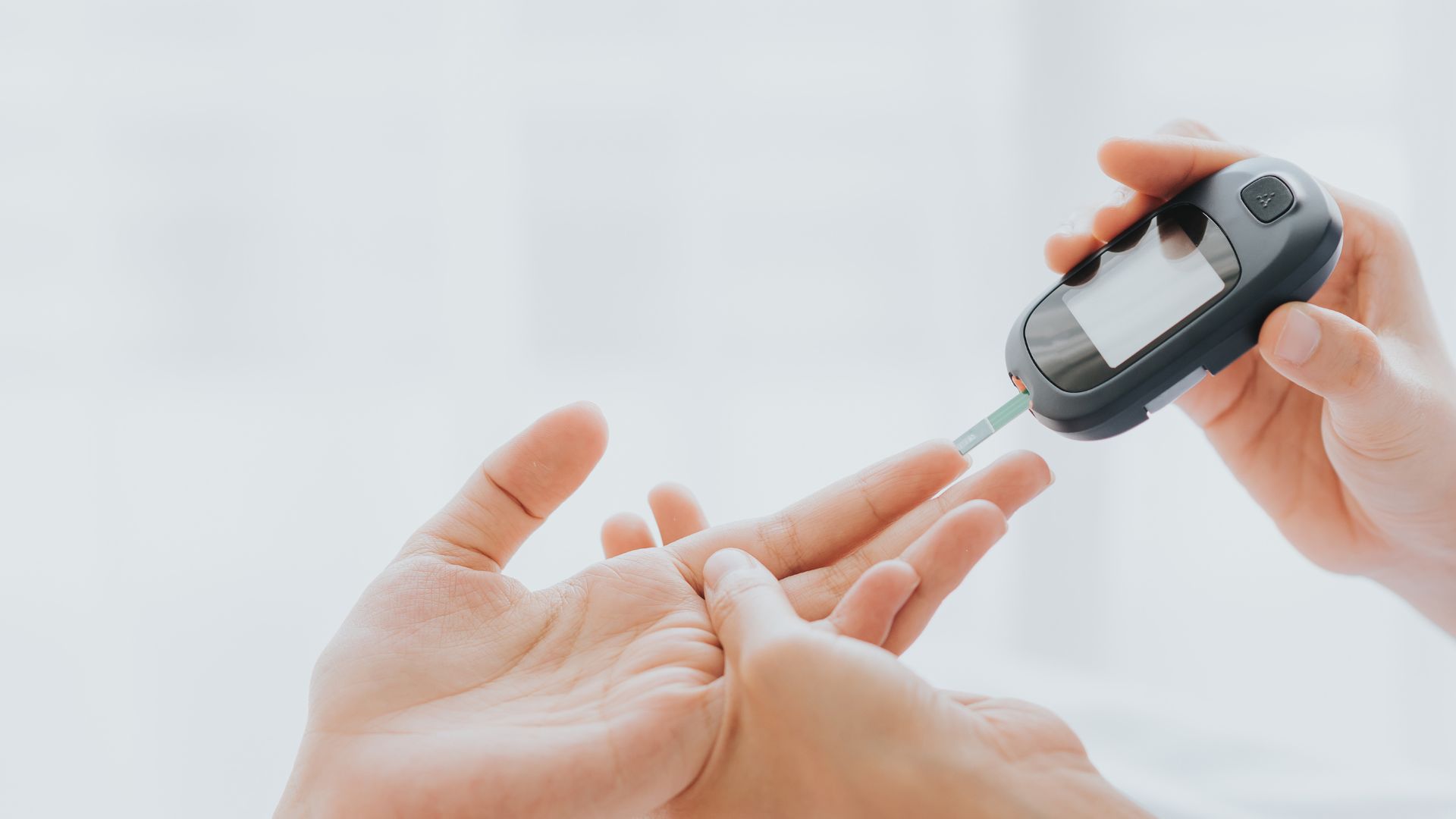
20 Jul Can Weight Loss Reverse Prediabetes?
A new study has provided compelling evidence that weight loss combined with blood sugar regulation can help prevent the development of type 2 diabetes and even reverse prediabetes. Here, we discuss the key findings of the study, and some key nutritional considerations for those with prediabetes.
We are a team of qualified, experienced nutritionists who specialise in weight loss. Are you looking to optimise your health, nutrition, and blood sugar levels? And establish healthy habits that stick long term? We can help. Schedule your complimentary call today to find out more.
WHY IS PREDIABETES A PROBLEM?
Type 2 diabetes is a growing global health concern, with projections indicating that over 1.3 billion people worldwide will have diabetes by 2050. Prediabetes is a condition characterised by elevated blood glucose levels, not yet meeting the criteria for diabetes. If left unmanaged, it is common for prediabetes to develop into type 2 diabetes. Type 2 diabetes is associated with an increased risk of many chronic diseases, including heart disease, neurodegenerative disease and cancer.
WHAT DOES THE NEW STUDY SHOW?
Researchers analysed data from the Diabetes Prevention Program (DPP). It compare the effectiveness of weight loss alone versus weight loss combined with blood sugar management in preventing the development of type 2 diabetes. The study focused on participants who achieved the recommended goal of ≥7% body weight loss.
The key results were as follows. Participants who lost ≥7% of their body weight and achieved prediabetes remission (defined as a return to normal glucose regulation) had a 76% lower relative risk of developing type 2 diabetes within 6 years compared to those who lost weight but did not achieve remission.
In the first 4 years of follow-up, less than 1% of participants who achieved both weight loss and prediabetes remission developed type 2 diabetes. The probability of developing type 2 diabetes was significantly lower in those who achieved both weight loss and remission from year 2 onwards.
CAN YOU REVERSE PREDIABETES?
Prediabetes is reversible for some people, as is type 2 diabetes. However, in order to achieve this sustained commitment to a healthy diet and lifestyle choices is required. The study suggests that current guidelines for prediabetes management should be updated to include both weight loss and glycemic targets. By aiming for prediabetes remission in addition to weight loss, individuals may have a better chance of preventing or delaying the onset of type 2 diabetes.
In order to manage your blood sugar levels, it’s important to understand the diet and lifestyle factors that affect your blood glucose. Here are a few guides we have written that may help you in doing just that:
Understand carbohydrates: The Glycemic Index: What You Need To Know
Learn how to monitor your blood sugar: A Guide To Continuous Glucose Monitoring (CGM)
Gain a deeper insight into insulin’s role in blood sugar management: How To Improve Insulin Sensitivity Naturally.
Healthcare providers may consider setting dual goals for patients with prediabetes: achieving ≥7% body weight loss and reaching normal glucose regulation. For individuals who achieve weight loss but do not reach prediabetes remission, continued weight loss efforts or increased physical activity may be beneficial. Sustaining weight loss is crucial for maintaining the benefits of prediabetes remission, as well as making long term lifestyle changes.
WHAT ARE THE IMPLICATIONS OF THE STUDY?
The global burden of diabetes continues to grow, particularly in low-and-middle-income countries. Implementing these study findings could have far-reaching benefits for public health. The study underscores the importance of a comprehensive approach to prediabetes management. Effective weight loss and blood sugar management may lead to improved health outcomes and reduced healthcare costs associated with type 2 diabetes and its complications. A successful blueprint to reverse diabetes would have enormous benefits across the world.
NUTRITION FOR PREDIABETES
If you fall into the prediabetes category, this is promising news that you can reverse your prognosis with the right diet and lifestyle management. So, how can you best manage prediabetes?
Achieving and maintaining a healthy body fat percentage is key. As the study we discussed above highlighted, achieving a healthy weight is a key consideration. Be mindful of portion sizes to avoid overeating. Achieving a calorie deficit is an important part of the weight loss puzzle.
Engaging in regular exercise, including both aerobic (cardio) and strength-training activities, can help regulate blood sugar levels. Aim for at least 150 minutes of moderate-intensity aerobic exercise per week. Aim to strength train two to three times per week.
Consume a balanced diet based on whole foods, including vegetables, lean proteins, and healthy fats. Limit your intake of ultra processed foods, refined carbohydrates and sugars, as these can contribute to insulin resistance.
Pay attention to the type and quantity of carbohydrates you consume. A period of time on a very low carbohydrate ketogenic diet can be beneficial for improving insulin sensitivity.
Include moderate servings of healthy fats in your diet, particularly extra virgin olive oil. Avocados and unroasted nuts and seeds are also whole food sources of healthy fats.
WORK WITH US
We are a team of qualified nutritionists who specialise in weight loss. If you’re ready to overcome your health and weight challenges and establish supportive habits that stick long term, we can help. You can use this link to book in for a complimentary call today. This is an opportunity to talk through your challenges with a member of our team. Together you can decide together whether one of our Intelligent Weight Loss programmes is right for you. Or contact us to request a copy of our brochure and we will get back to you soon.
Receive the latest news, expert tips and advice direct to your inbox. Sign up for Kim’s weekly weight loss and wellness newsletter.

